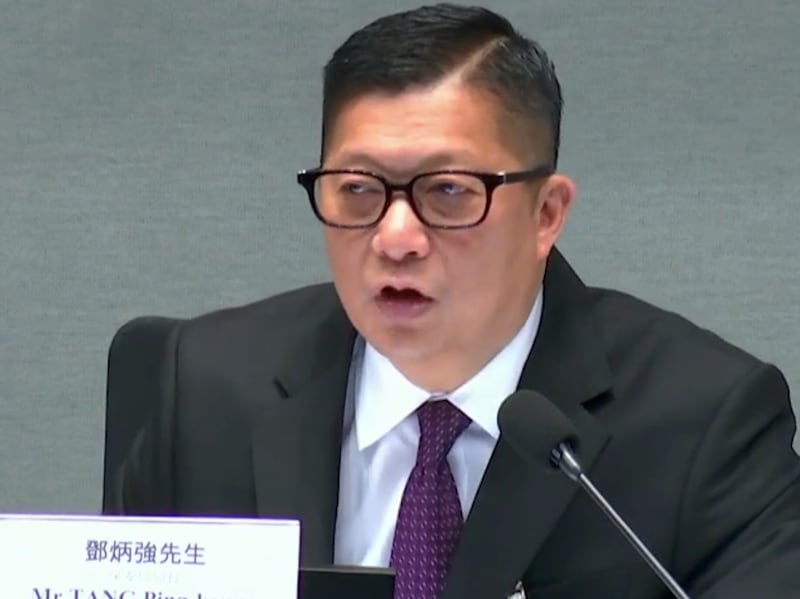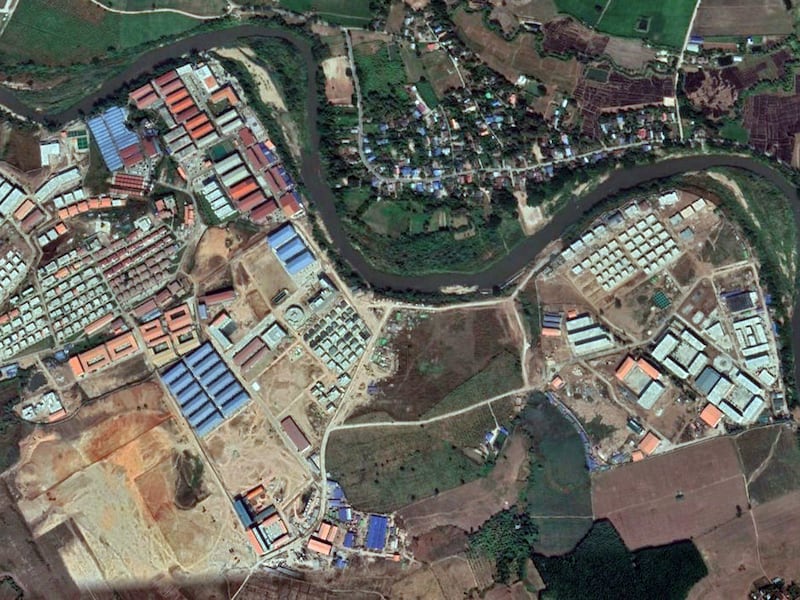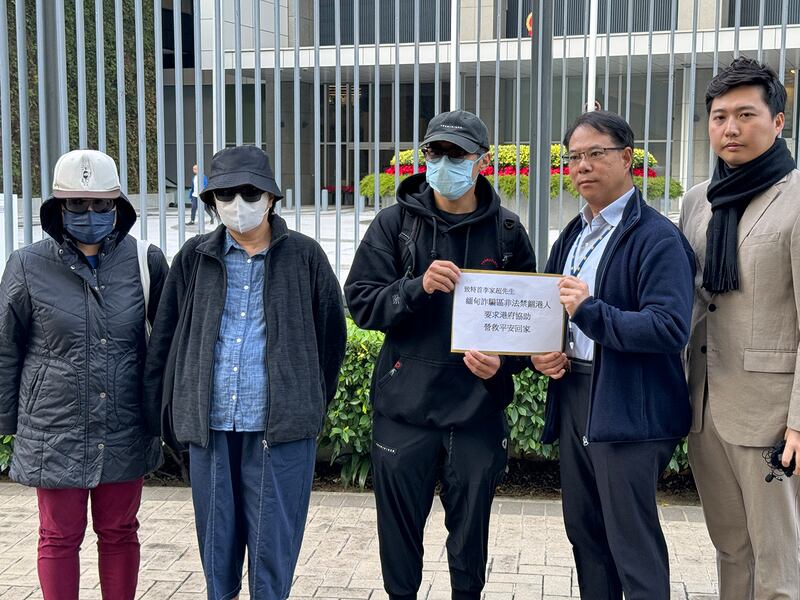Hong Kongers who go overseas are still winding up trapped in a notorious scam park operation in Myanmar, family members told RFA Cantonese in recent interviews after petitioning the city’s leader John Lee for help.
They are joining thousands of captives who are being held at a large compound in Kayin state called KK Park, a Chinese development project that has become a notorious center for scam operations.
Thousands of human trafficking victims from all over Asia — and as far away as Africa — are being held hostage there despite some attempts at rescue by the authorities. Former victims have said they were lured in by false advertisements and forced to scam other people, then tortured if they refused to comply.
A woman who gave only the nickname Mary for fear of reprisals, who was among three people to petition Chief Executive John Lee for assistance with disappeared family members on Tuesday, said she had lost contact with her son after he traveled to Thailand at the beginning of December “for work.”

He didn’t tell his family what kind of work he had planned, and remained in touch until the point where he is believed to have entered KK Park.
Asked if she fears for her son’s life, Mary told reporters: “That’s the thing I’m most worried about.”
Mary’s son is among at least 23 Hong Kongers believed to be lured into Southeast Asian scam operations this year, Secretary for Security Chris Tang told the Legislative Council on Dec. 3. Of those, 11 have returned to Hong Kong, Tang said.
While Tang told lawmakers that some people inside KK Park were “in contact” with loved ones, and that anyone working there had “entered voluntarily,” relatives of the missing say they haven’t heard from their loved ones at all, and that they were tricked into going there while traveling to completely unrelated countries like Japan and Taiwan.
RELATED STORIES
‘Thousands’ of trafficked people held at scam casino site amid escalating violence
Plea for help from telephone scam victims falls on deaf ears among Chinese officials
61 Vietnamese rescued from Myanmar casinos
Scam centers have plagued the border areas of Thailand, Myanmar and China as nationals from all three countries are tricked into — and subsequently enslaved in — online fraud.
The businesses typically force trafficked workers to call people across Asia and convince them to deposit money in fake or fraudulent investments.
Tens of thousands involved in the criminal schemes were deported from Myanmar in 2023 by both junta and rebel army officials. Many are linked to forced labor, human trafficking and money laundering, which proliferated after COVID-19 shut down casinos across Southeast Asia.
Six new cases
Former Yau-Tsim-Mong District Council chairman Andy Yu, who has previously helped Hong Kong families with loved ones in KK Park, said he has received six new cases of family members trapped at the site in recent weeks.
“There are a lot of family members who are unable to contact their loved ones, so they are wondering why the secretary for security said that they are in contact with those trapped there,” Yu told RFA Cantonese while delivering the petition on Tuesday.

Yu said the organization that runs the park now appears to be stopping them from contacting loved ones to let them know they’re OK, after previously allowing it.
“It’s been hard for family members to reach their loved ones lately, so they don’t even know if they’re OK or not,” he said.
Another family member of a person trapped in KK Park who gave only the nickname Calvin for fear of reprisals said his relative had been lured to Myanmar after traveling to Japan in search of a job as a purchasing agent six months ago.
They were only supposed to be gone for two or three days, so by day four, Calvin reported them missing to the Hong Kong police.
He later heard from his relative that they were being held in KK Park, but he hasn’t heard anything back from the police, he told RFA Cantonese.
Promises of jobs
Yu said victims are being lured initially to Japan and Taiwan, often with the promise of a job, then taken to Thailand, then to KK Park in Myawaddy.

Ransoms have skyrocketed in recent years, he said.
“Two years ago, you could have gotten out by paying a ransom of HK$500,000-600,000 (US$64,300-77,200),” Yu said. “Now, it’s much higher, more than HK$1 million (US$129,000), and that’s if they even offer a ransom.”
“Getting out of there isn’t easy,” he said.
While staff at his office accepted the families' petition, Chief Executive John Lee made no mention of the issue when he took questions from reporters at a regular news briefing later in the day.
A United Nations report in August 2023 said that hundreds of thousands of people have been forced by organized criminal gangs into working at illegal casinos and other online scam work in Southeast Asia.
Myanmar and Cambodia topped the list of countries where the largest numbers of citizens were being forced to carry out online scams.
Translated by Luisetta Mudie. Edited by Roseanne Gerin.
